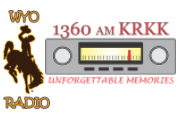October 30, 2015 — The University of Wyoming this week was designated as one of four ECHO superhubs that will build capacity in education and health care access in the United States and around the world.
Project ECHO (Extension for Community Healthcare Outcomes), the medical education and care delivery model, has created superhubs that will play a critical role in increasing the number of regional centers that participate in ECHO.
“This will allow millions more people in rural and underserved communities to access health care and other services that they need,” says Sanjeev Arora, creator of the ECHO model and director of the ECHO Institute at the University of New Mexico Health and Sciences Center (UNMHSC) in Albuquerque. “With the new superhubs on board, we are entering a new and exciting phase of this collective effort. Together, we want to change the world, fast.”
The four newly announced ECHO superhubs are the American Academy of Pediatrics ECHO, University of Wyoming ECHO, ECHO Northern Ireland and ECHO India. The superhubs will launch projects creating new access to services for issues ranging from specialized pediatric care to learning disabilities to mental health.
The Wyoming Institute for Disabilities (WIND) in the UW College of Health Sciences has successfully translated the ECHO model to provide training and support to educators for students who need assistive technology strategies. As a superhub, WIND will train education- and disabilities-focused hubs in Wyoming and other states in evidence-based, tele-mentoring practices. It also will work with the Wyoming Department of Education and Wyoming Department of Health to develop several new hubs, says Sandra Root-Elledge, WIND interim director.
UW was first in the nation to translate the ECHO model for use in education from its original intended use in health care to meet needs that were not being met, Root-Elledge says.
Arora adds, “Thanks to the University of Wyoming, we’re getting a clearer picture of ECHO’s potential to help people in new and different ways. The Wyoming Institute for Disabilities has implemented a wonderful and unique innovation of the ECHO model by applying it to help students in need of assistive technologies.”
In Wyoming, WIND is working with the UW College of Education’s Wyoming Center for Educational Leadership , to develop an ECHO network or educational leadership training for superintendents and curriculum directors; the Wyoming Department of Education’s Division of Individual Learning, to support networks in autism, positive behavioral supports, student transitions and early literacy; and the Wyoming Department of Health, to develop UW ECHO networks to enhance services for individuals with developmental disabilities, adults who need long-term care, and children with mental health care needs.
Through tele-mentoring, Project ECHO creates access to high-quality specialty care in local communities (school districts in UW’s case), so that more patients (students in UW’s case) get the right care or services at the right place at the right time.
“It is conceivable to predict that we will be providing training and technical assistance in many other states and several other countries,” Root-Elledge says. “Just within our first year of work, we have participation from five additional states; we had a site visit from administrators at a school in India; and interest from Qatar. Now, ECHO India wants to replicate exactly what we are doing when they build a sufficient infrastructure.”
Replicating the ECHO model is achieved through ECHO “hubs,” regional centers that provide mentoring and guided practice to local provider sites or “spokes” via regular teleECHO sessions supported by videoconferencing technology. Participating multidisciplinary teams at the community spoke sites gain specialty expertise and knowledge that enables them to provide appropriate services to patients or students within or near their home communities.
Until recently, the ECHO Institute at UNMHSC has been the sole trainer of ECHO hubs. But, to support global spread of the ECHO model and achieve the goal of touching one billion lives, training must be more widely available.
“The new superhubs will train and support ECHO hubs while ensuring fidelity to the ECHO model,” according to the Project ECHO announcement.
*Photographed: Assistive Technology Assistant Gisele Knopf, left, and student assistant Chloe Storaci, both with the Wyoming Institute for Disabilities, confer with colleagues during a recent teleECHO session in the College of Health Sciences. Selected as one of four international superhubs, UW was first in the nation to translate the ECHO model for use in education from its original intended use in health care. (WIND Photo)


